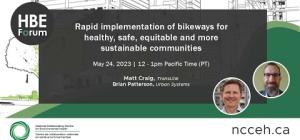Measuring success in food systems planning
Ellen Gregg
Food systems are the complex web of activities and interactions that include food production, transportation, processing, retailing, preparation, and finally disposal. While these food systems are generally thought of as largely agricultural or rural, Pothukuchi and Kaufman’s landmark paper in 1999 highlighted the importance of urban food systems in particular, and encouraged urban planners to incorporate food system considerations into municipal and regional plans. Areas of focus included: preserving agricultural land, preventing and processing food waste, environmental outcomes related to food production, processing, distribution, and storage, and ensuring adequate access to healthy food. This webinar will be an overview of food system planning interventions that have been implemented and evaluated since 1999, with a specific focus on outcomes related to environmental sustainability, economic development, availability of healthy food, individual food behaviours, and nutrition-related health outcomes.
Ellen Gregg is a Registered Dietitian and PhD candidate working under the supervision of Dr. Leia Minaker in the School of Planning at the University of Waterloo. The focus of Ellen's research is on Land Use Planning, exploring interventions leading to outcomes in community diet quality, economic development, and sustainable food production.










